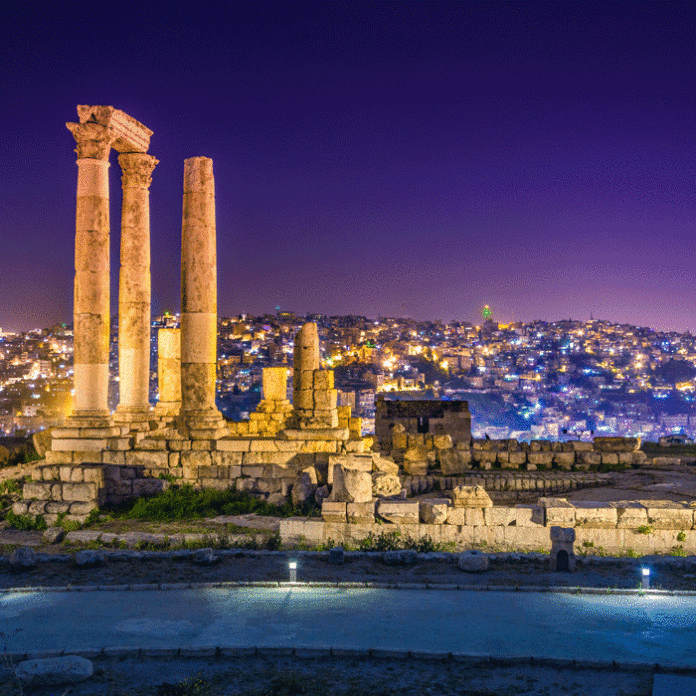Weird things are happening in the Middle East. Iran is talking peace from across the street to an American delegation, shuttling sensitive discussions back and forth through intermediaries. At least they are talking, albeit indirectly, to the “Great Satan.”
Perhaps diplomats are talking because the influence of the Iranian Revolutionary Guards has been weakened by the recent mining of their spy ship by Israeli commandoes, and what appears to be a new Stuxnet-type computer virus that has attacked the Iranian nuclear centrifuges. All Iran will admit is that there was a “small explosion” at Natanz.
Iran is the sickest of all the Arab nations. It needs help dealing with COVID-19. The pandemic has pushed IRGC politics aside, albeit temporarily. In contrast, the Palestinian head of state is begging for international financial assistance to combat the pandemic. Yet, he refuses to answer a phone call from the American secretary of state on the grounds that the Palestinian head of state should only be addressed by President Biden himself and not merely by one of his underlings.
As politicians decline in power, they proportionately increase their demands for pomp and protocol. The truth is that so few Palestinians love the PLO anymore that it is doubtful Abbas’ corrupt gang could win re-election in the West Bank, let alone Gaza.
There is a very real chance for Hamas to emerge from democratically supervised elections this year as the internationally recognized government of the Palestinian people. Israel should be facing the possibility that in 2021, an Islamist terrorist group constitutionally dedicated to the destruction of the Jewish nation might suddenly take power on two of Israel’s borders.
Hmm, what could go wrong? If the UN recognizes Hamas as the legitimate Palestinian government, nothing prevents Hamas from signing a mutual defense pact with Iran or Syria. Can you imagine the West Bank armed with thousands of Iranian missiles, some of which can fly under the Iron Dome radar system? How could the IDF defend Jerusalem from missiles launched from the very suburbs of Jerusalem?
But forget Israel’s Islamic enemies for a moment; what if Hamas signs a mutual defense pact with a superpower like Russia or China? Russia needs to offer Hamas something that will guarantee the free flow of Russian oil from Ashkelon down the Israeli pipeline to Eilat, because if Hamas’ attacks ever succeeded in closing down either end of the pipeline, Russia would have to ship its oil all the way around Africa at a huge additional cost. Russian supertankers are just too large to fit through the Suez Canal.
Yes, I think Russia (and China) would have a vested interest in keeping a future Hamas government supplied with arms. Can you imagine if the West Bank were flooded with Russian anti-aircraft radar systems? Hamas could target the IDF’s stealth aircraft before they even got off the ground.
Similarly, what would happen to Israel’s naval embargo if China installed its guided ship-killer missiles along the Gaza coast? They could threaten every Israeli port on the Mediterranean, not to mention destroy every Israeli offshore drilling platform for natural gas.
The Russians would love to have the Israeli threat to their European gas monopoly removed by their puppet Palestinians. The Russians would not even have to risk sending their own missiles to Hamas, just as long as their Chinese allies arm the new proxy Palestinian Navy with ship-killer missiles for “self-defense.”
A Hamas government in the West Bank would be a clear and present danger to Israel. But where do Israelis see the immediate danger? Israel’s border with Gaza? The West Bank? No, some see the big risk coming from the other side of the West Bank: The Kingdom of Jordan.
Dr. Martin Sherman, a respected conservative analyst, recently published an opinion piece entitled “Jordan’s House of Cards.” In his opinion, the end of the pro-Western monarchy in Jordan could pose an existential threat to Israel: “If the monarchy falls, or is even sufficiently weakened, so as to become a mere puppet regime of more powerful radical forces, Israel could find itself in a dire situation. For along its eastern border, there may no longer be a conservative, relatively moderate pro-Western monarchy but, in all likelihood, an extreme Muslim regime with an incandescent hostility towards the Jewish state. This will make the highlands of Judea and Samaria even more crucial for Israel’s security.
“As Israel has little to no ability to determine who will—and who will not—rule Jordan, the only way it can avoid this potential nightmare scenario is to ensure continued control of these highlands—which ipso facto—precludes the establishment of a future Palestinian state on them.”
In 1951, Abdullah I, who was the first king of the new country of Jordan—which had been renamed from Transjordan after they conquered the parts of the West Bank that had been meant for the Palestinians according to the UN partition plan—was visiting the Al-Aqsa Mosque in Jerusalem with his 15-year-old grandson, Hussein. In front of the boy, Palestinians assassinated Abdullah for the crime of trying to make peace with his Israeli neighbors. His grandson, King Hussein, proved to be an even more popular monarch when he ascended to the throne a year later. Even the tribal leaders loved the handsome young King Hussein.


























